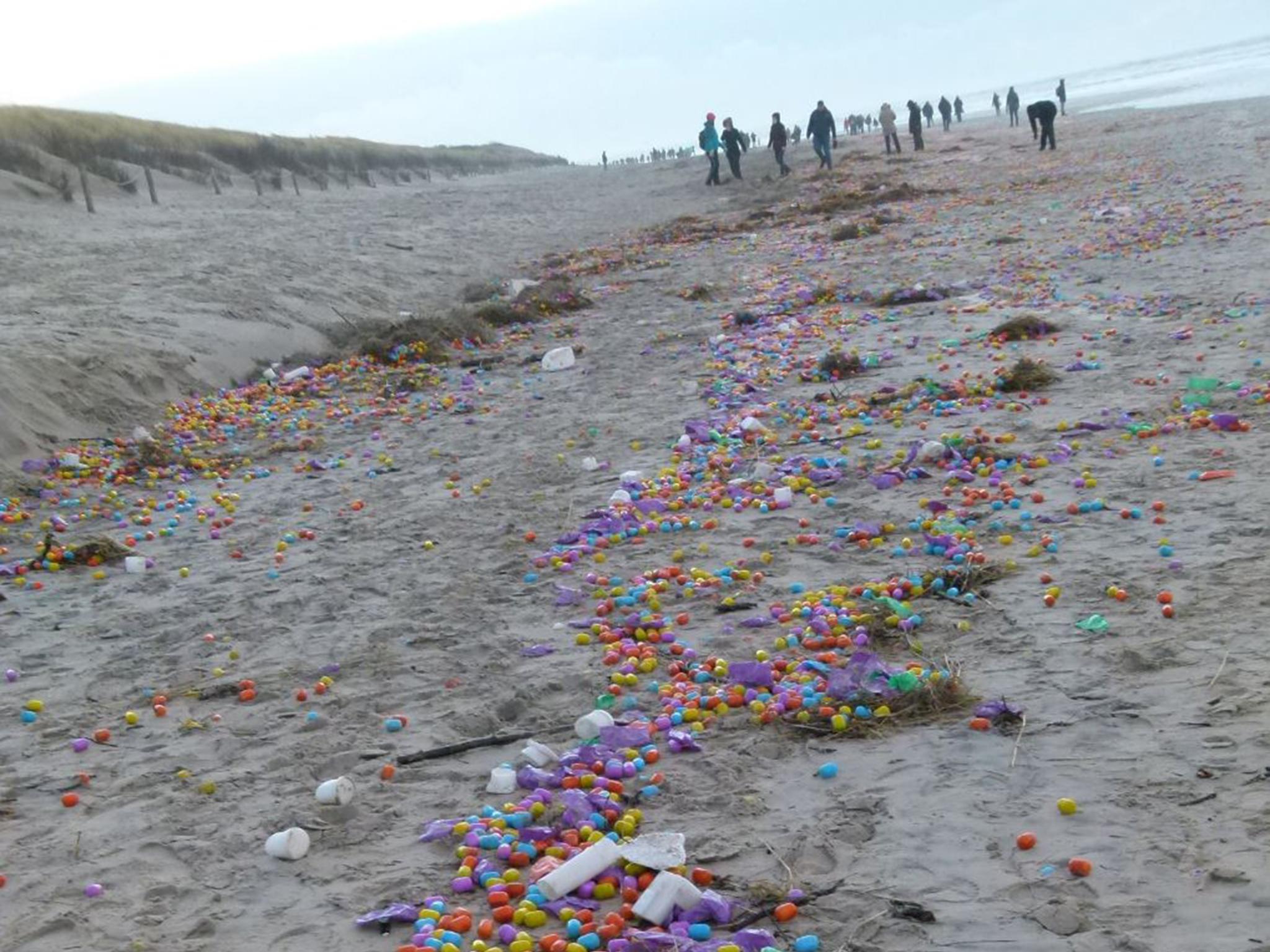Thousands of multi-coloured Easter eggs wash up on German beach after storm
'This isn’t funny anymore - it’s damaging for the environment and highly dangerous for animals', warns local mayor

Thousands of coloured Easter eggs containing small toys have washed up on the shore of a German island, after they were washed off a cargo ship during a storm.
The small plastic capsules reportedly came to the island of Langeoog in the North Sea on five freight containers, as a ship belonging to Danish firm Reederei Maersk struggled through the heavy winds of Storm Axel.
The ship was travelling between China and Bremen when bad weather struck. The eggs contained toys with Russian messages, with tourists and children on Langeoog quickly joining a game to collect up the capsules.
The local mayor, Uwe Garrels, meanwhile pointed out that many plastic bags and other items of rubbish had washed up on the beach alongside the eggs. “This isn’t funny anymore - it’s damaging for the environment and highly dangerous for animals,” he told the Local.
A large crowd from the island later congregated on the beach to help with the clean-up effort, with local photographer Daniela Skrzypczak writing on Twitter: “Many hands make light work and nature says thank you.”
Storm Axel contributed to the worst flooding on Germany’s north-east coast for a decade, causing major damage to services in towns along the Baltic sea.
Rising sea levels left cars and homes submerged, and emergency services were called out on multiple occasions to save residents from the freezing waters.
Join our commenting forum
Join thought-provoking conversations, follow other Independent readers and see their replies
Comments
Bookmark popover
Removed from bookmarks